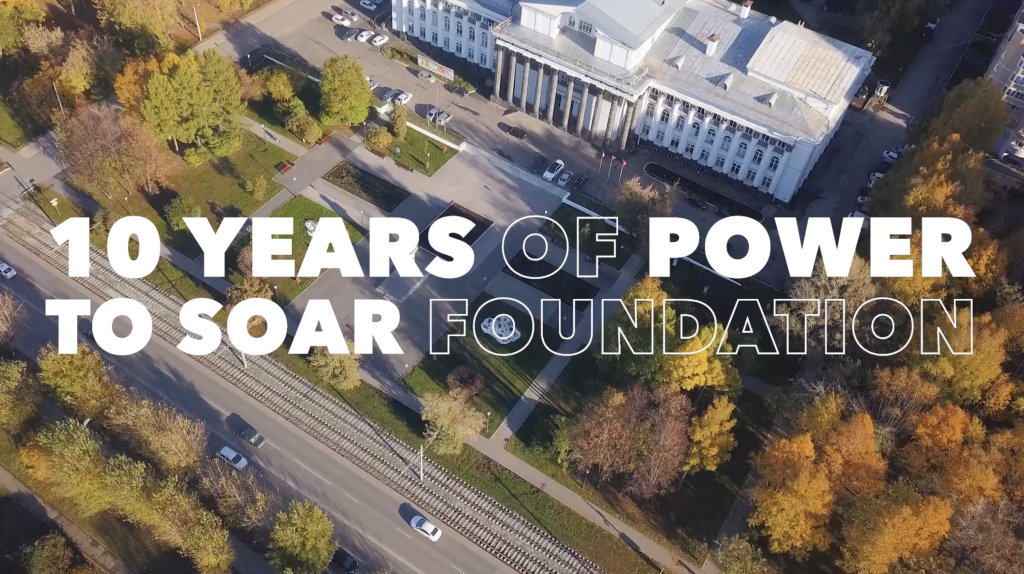Can a single woman foster a child? Absolutely. One of the most persistent myths about foster care is that you need to be married or part of a couple to make a difference. In reality, single women are stepping up and providing the love and stability that children in foster care desperately need.
As a single woman, you might wonder if you’re qualified or capable of fostering. The truth is, many single parents are already thriving in this role, making up about 30% of foster parents nationwide. This article will explore what it takes to foster as a single woman, debunk common misconceptions, and help you decide if this life-changing journey is right for you. You could be exactly what a child in foster care needs.
Key Takeaways
- Single women can successfully foster children, offering them care, stability, and emotional support.
- Approximately 30% of foster parents nationwide are single, debunking the myth that you must be married to foster.
- Key requirements include financial stability, a safe home environment, and completing pre-service training specific to fostering.
- Challenges such as balancing responsibilities and addressing a child’s trauma can be managed with proper planning, patience, and resilience.
- Building a strong support network of friends, family, and other foster parents can enhance your ability to provide a nurturing environment.
- Fostering as a single woman is a life-changing opportunity to make a meaningful impact on a child’s future.
Table of Contents
Can A Single Woman Foster A Child?
Yes, single women can foster children and provide them with the care and stability they need during a challenging time. While there’s a common misconception that you need to be married or financially affluent, these are just myths. Your ability to create a safe and nurturing environment is what truly matters in foster care. In fact, single women make up about 25% of adoptive homes and 30% of foster homes in the United States according to recent data.

As a single woman fostering a child, you bring unique strengths to the experience. Children in foster care benefit greatly from the focused attention, emotional investment, and genuine commitment you can offer. Even with the added responsibilities of being the sole caregiver, many single foster parents successfully meet the needs of their foster children and create lasting, positive impacts.
Before fostering, you’ll need to meet specific eligibility requirements, which vary by state. These include being over 18, passing a physical exam, and demonstrating financial stability. While you don’t need to be wealthy, supporting a child without depending solely on state payments is critical. Pre-service training also prepares you for the unique needs of foster youth, offering guidance and resources to enhance your role as a caregiver.
You may face additional challenges balancing work, personal commitments, and parenting responsibilities as a single foster parent. With determination and proper planning, these can be managed effectively. Many single foster parents rely on support networks, leaning on friends, relatives, or other foster families for encouragement and assistance. Preparing a support system in advance helps create a more stable environment for your foster child.
Fostering as a single woman is an opportunity to make a difference. Whether the child’s journey leads to reunifying with their biological family, staying with kin, or adoption, your role as a steadying presence helps shape a brighter future.
Key Considerations For Single Women As Foster Parents
Single women bring unique strengths to fostering, offering stability, care, and compassion. However, fostering requires preparation and readiness across multiple aspects of life.
Understanding The Lifestyle Commitment
Fostering demands significant time and flexibility. Your work-life balance should align with the needs of the child, including tasks like school pickups, medical appointments, and attending training sessions. A flexible schedule or workplace support can ease these responsibilities.
Your home should provide a stable, safe environment. Having a spare bedroom is often a requirement, as it ensures the child has their own space. Consider if your housing situation meets state-specific fostering standards.
Assessing Your Emotional Readiness
Foster children may have experienced trauma. Supporting them requires patience, empathy, and emotional resilience. Ask yourself if you’re equipped to handle challenges like behavioral outbursts while remaining composed and understanding.
Taking time to reflect on your motivations for fostering helps you assess emotional preparedness. Engage in pre-service training and connect with other foster parents to build confidence.
Financial Stability And Support Networks
A steady income and financial readiness are vital. While fostering agencies often provide stipends to cover the child’s needs, personal funds may also be needed for emergencies. Review your budget and evaluate how fostering fits into your financial situation.
Building a support network enhances your fostering experience. Friends, family, or foster parent groups can provide emotional encouragement and practical assistance. Surrounding yourself with a strong community contributes to a nurturing environment for the child.
The Process Of Becoming A Foster Parent
Becoming a foster parent involves a structured process to ensure you’re well-prepared to provide care. While the journey may vary slightly by state, the core steps are consistent across the US.
Steps To Getting Licensed
Getting licensed is a critical step in fostering. It typically begins with completing an application that includes verifying your identification, age (usually 21 or older), housing situation, and income stability. You’ll undergo background checks to ensure safety and suitability, followed by a home study assessing your living environment. The home study evaluates the physical space, ensuring there’s a designated room for the child, and reviews your emotional readiness and parenting perspectives.
Agency orientation meetings provide deeper insights, explaining what to expect, the needs of foster children, and any specific agency protocols. Whether fostering through a state agency or private agency, understanding their requirements helps streamline the process.
Foster Parent Training Requirements
Training ensures you’re equipped to handle the diverse needs of foster children. Pre-approval training typically spans 12 hours, focusing on the child’s emotional and physical well-being. Pre-placement training, often 8 hours, emphasizes self-care as a caregiver and the principles of prudent parenting.
Once approved, you’re expected to meet annual renewal training requirements, which often include an additional 8 hours. These sessions keep you updated on best practices, providing continued support to manage the challenges and responsibilities of fostering.
Challenges And Rewards Of Single Parent Fostering
Single parent fostering can be both challenging and deeply rewarding, especially for single women who bring unique perspectives and strengths to caregiving. Understanding and addressing these challenges is key to creating a supportive environment for the children in your care.
Overcoming Common Challenges
Fostering as a single woman often requires careful time management. Balancing work responsibilities, personal commitments, and the demands of fostering can feel overwhelming, especially when children need help transitioning into a new environment. Developing strong organizational habits, like creating daily schedules and prioritizing tasks, reduces stress and ensures consistency for your foster child.
Providing emotional support is another challenge, as many foster children experience trauma or behavioral difficulties. Patience, active listening, and offering reassurance are essential in building trust. Utilizing foster care training sessions equips you with tools and strategies to handle these situations effectively, helping you feel prepared.
Building A Support System
A strong support system is critical for single parent fostering. Surround yourself with friends, family, and other foster parents who can step in if you need assistance. Engaging with foster care networks and joining local or online groups connects you with individuals who share similar experiences and insights.
Collaborating with your assigned social worker is another valuable resource. They can provide guidance, access to childcare services, and advice for navigating complex situations. Having backup plans, like arranging help for school pickups or medical appointments, adds stability to your fostering journey.
The Impact On Foster Children
Your care and attention as a single foster parent can transform a child’s life. Foster children often enter care feeling uncertain and vulnerable. By providing consistency, a safe environment, and emotional support, you help them rebuild trust and confidence.
Children thrive in settings where they feel heard and respected. Your focused attention reassures them that they matter. Even when fostering short-term, the stability and love you offer leave lasting positive effects on their development and future outlook.
Tips For Success As A Single Foster Parent
Fostering as a single parent comes with unique rewards and challenges. Success in this role often relies on preparation, adaptability, and building strong connections.
Time Management And Scheduling
Effective time management ensures you handle daily responsibilities smoothly. Create a clear schedule for activities such as school pick-ups, medical appointments, meals, and bedtime routines. Use planners or digital tools to track commitments. Prioritizing tasks helps navigate unforeseen demands, like attending last-minute meetings with social workers. Flexibility is vital, especially when accommodating a child’s needs during emergencies.
Connecting With Other Foster Parents
Building relationships with other foster parents offers emotional support and practical advice. Participate in foster parent networks, community events, or support groups to exchange experiences. These connections provide insights into overcoming common challenges, like addressing trauma or managing legal processes. Joining local or online forums allows you to learn, share stories, and stay encouraged.
Embracing Each Day With Patience And Resilience
Patience and resilience are essential for fostering. Children in care often face emotional struggles and require time to adjust. Approach each day with a calm mindset, actively listening and validating their feelings. Celebrate small milestones to build trust and confidence. Rely on your training background and support system to stay strong during challenging moments while fostering growth and understanding in your home.
Frequently Asked Questions
Can single women foster children?
Yes, single women can absolutely foster children. In fact, single women make up about 30% of foster parents in the U.S. They provide care, stability, and emotional support for children in need, proving that fostering is not limited to married couples.
What qualifications are needed to foster as a single woman?
To foster, you must be at least 21 years old, have a stable income, pass a background check, complete foster care training, and provide a suitable and safe living environment.
What challenges might single foster parents face?
Single foster parents may face challenges like balancing work, personal life, and fostering responsibilities. However, strong organization, support networks, and foster care training can help manage these issues effectively.
Do single foster parents need a support system?
Yes, a strong support system is crucial. Family, friends, foster care groups, and social workers can provide emotional and practical help to ensure a stable environment for the foster child.
How do single women prepare for fostering?
Preparation involves completing licensing requirements, attending foster care training, meeting financial stability criteria, organizing living space, and developing a flexible lifestyle to accommodate fostering needs.
Can single women adopt children after fostering?
Yes, single women can adopt foster children if they meet adoption requirements. Approximately 25% of adoptive homes in the U.S. are led by single women.
How much time does fostering require?
Fostering a child requires time for school pickups, appointments, bonding, and caregiving. While it can be time-intensive, effective time management and routines can make it manageable.
Do foster children receive financial support?
Yes, foster parents receive financial assistance, which varies by state and the child’s specific needs. The funds help cover the child’s daily care, including food, clothing, and other necessities.
Is fostering as a single woman emotionally rewarding?
Absolutely. Single women who foster often find it highly rewarding, as they provide children with stability, emotional support, and a safe home environment during difficult times.
How long does the fostering process take?
The entire fostering process, including training, background checks, and a home study, typically takes several months, although the timeline can vary by state.






